
Find out why our opioid rehab center in Florida is your best choice in treatment.
Opioid drugs belong to a specific class of drugs responsible for producing various effects on the brain and central nervous system.
Opioids are believed to block pain signals sent from throughout the body to the brain. When these signals are blocked, the perception or feeling of pain is vastly reduced or even eliminated.
People obtain opioid drugs in a few days. First, opioids are frequently prescribed medications.
This type of opioid (generally known as prescription opioids or painkillers) is obtained via prescription from a medical provider as part of a pain management program. The second type of opioid drug also frequently linked to addiction is “street drugs” such as heroin. In addition to blocking pain signals sent to the brain, opioid drugs also produce side effects, including feelings of intense relaxation and a “high” that inhibits the feeling of certain emotions such as anxiety, depression, or fear. Unfortunately, tolerance and dependency are often quick to develop in opioid users making these drugs highly addictive.
Oxycontin and Vicodin are among the most commonly abused prescription opioids. In addition to prescription drugs like oxy and Vicodin, street drugs heroin and fentanyl are widely used. Fentanyl is an incredibly strong synthetic drug that is between fifty and one hundred times more potent than morphine, making it highly dangerous. Patients who struggle with chronic pain or acute pain (related to injury, surgery, or another short-term or sudden condition) use prescription opioids to treat instances of moderate to severe pain.
They are often prescribed for chronic health conditions where pain management becomes challenging or following surgery or injury. Opioids are classified as a schedule II substances due to their high risk of addiction. In fact, as many as one in four patients using long-term opioid therapy struggles with opioid addiction. In 2018, nearly 47,000 Americans lost their lives to opioid overdose; of those, 32% involved prescription opioids obtained through legal prescriptions.


The opioid epidemic is one of the worst crises in America. Over the last few decades, it has increased and spread throughout multiple classes, genders, and communities.
With Reign Residential Treatment Center, you can become a statistic for change, not addiction. Call us today at (866) 828-1248.
An opioid use disorder is a mental health condition characterized by one’s inability to stop using drugs despite the known harmful consequences or impacts on their day-to-day life and relationships. If you are concerned that a loved one is struggling with opioid use disorder, it is vital to seek comprehensive addiction treatment at a South Florida addiction treatment facility like Atlantic Recovery Center to ensure they receive the highest level of support and care as they work to overcome their addiction.
Some of the most common signs of opioid addiction include the inability to stop using, taking opioids in an unprescribed or potentially dangerous way (such as crushing, snorting, smoking, or injecting), and drug-seeking behaviors. Examples of drug-seeking behaviors include an intense focus on obtaining or using opioids without a prescription and increased use or increased dosages to maintain or obtain the same high they once got at the prescribed dose.
In addition to the above, opioid abuse leads to various physical and behavioral symptoms. Factors such as increased tolerance and increased frequency of use play a role in the type and severity of the symptoms. Symptoms of opioid abuse and addiction are often divided into categories, including mood disturbances, behavioral disturbances, psychological disturbances, and physical disturbances. Common mood changes include mood swings, anger, anxiety, and depression. Behavioral disturbances may include losing appetite, forging prescriptions, doctor shopping, impaired performance, and stealing from family and friends to buy drugs.
Examples of psychological disturbances associated with opioid use and abuse may include psychotic symptoms such as delusions or hallucinations. Physical disturbances include some of the more familiar visible signs of addiction, such as fatigue, weakness, gastric upset, breathing difficulties, chest pains, cardiac arrest, and seizures.
Opioids interact with opioid receptors inside your nerve cells. These opioid receptors block pain signals and produce a “high.” So, when you take any opioid, whether it is heroin or a prescription, it stops pain and makes you happy. That is why it is commonly prescribed as a pain medication. Unfortunately, it is also highly addictive.
Opioids are so effective at making you feel good that you end up feeling better than you would under normal circumstances like exercising, having sex, or achieving a good milestone at work. By interfering with your regular reward system, it does not take long before you need addiction treatment.
Reach out to Reign Residential Center to learn more about our opioid rehab center in South Florida.
Addiction is complicated, and medical professionals agree that there is no single cause of opioid addiction. However, a handful of risk factors can increase your likelihood of developing an addiction if you use opioids. The more of these risk factors you have, the more likely you will struggle with addiction.
Your upbringing and the environment in which you live can lead to addiction. If you grew up in a home where you were exposed to violence, abuse, systemic poverty, or drug use, that stress changed the size and function of your brain. It made the part of the brain that likes instant rewards and drug use more significant and the part of the brain that helps you regulate and be responsible smaller.
Even your current environment might mean that you need to check into an opioid drug rehab center for treatment. If you have a partner, live in a home, or your family abuses drugs or alcohol, you might normalize that behavior.
Studies indicate that exposure to trauma at any age can cause brain changes, making it more likely you will become addicted to drugs and alcohol if you use them. What is more, people with undiagnosed or untreated trauma are more likely to self-medicate to try and cope with symptoms.
Personal history of drug use or alcoholism can also cause structural changes to your brain that make you more susceptible to addiction moving forward. If you abused multiple substances in the past, if you are using more than one substance now, if you have tried South Florida addiction treatment and it did not work—and you had a relapse—we need to know all of that information because it contributes to a higher risk of addiction. That is why we ask about your current drug use or previous drug use when you come to our opioid rehab center.
During an assessment at our South Florida opioid drug rehab center, we will ask you about any history of mental illness in your family as well as yourself and any current mental illness with which you might struggle.
Something as simple as a depressive disorder can increase the likelihood of substance abuse. Nearly half of people with substance abuse problems also have depression or anxiety. Understanding your current mental health helps us determine whether programs like dual diagnosis are best for your situation. Dual diagnosis is a rehab program that treats the mental illness at the same time as opioid addiction.
If you visit an opioid rehab center in South Florida, we will also ask about your family history of mental illness and substance abuse. Even if you were not exposed to it directly, a family history of substance abuse might indicate a genetic predisposition to things like opioid addiction.
If you are ready for help, reach out to Reign Residential Treatment Center to learn more about our addiction rehab center in South Florida.




The first step in the treatment process for many struggling with an opioid addiction is detoxification or detox. The process of detoxing from opioid drugs can be life-threatening. Detoxing from these drugs is even more dangerous if you or a loved one engage in polysubstance abuse (multiple drugs or drugs and alcohol), as withdrawal symptoms maybe even more intense. Due to the potentially dangerous symptoms that can occur during withdrawal, it is essential to detox in a supported environment under medical supervision.
In some cases, treatment providers in a medically supervised detox program can administer medications to help reduce the impact of withdrawal symptoms, making detox more manageable. Detoxing alone or “cold turkey” can be dangerous and often leads to relapse if withdrawal symptoms become overwhelming. Although challenging, the detox process is a vital first step on your journey to recovery. It is possible to fully immerse yourself in an addiction treatment program after allowing your body to cleanse itself of all remaining harmful substances.

Opioid abuse is a struggle that can have significant mental and emotional health impacts. As you begin your treatment journey, your treatment team at our opioid and alcohol treatment program will work with you to design a treatment plan around your unique treatment needs and goals. The design of your treatment program will depend on various factors, including your history with addiction and addiction treatment, your history of relapse, and the duration and severity of your addiction.
Therapy for substance use disorders, including polysubstance abuse, generally involves cognitive behavioral therapy or CBT. This type of therapy focuses on the behavioral and thought patterns that further substance abuse. The goal of treatment is to ask patients to examine their thoughts and behaviors to help understand the root causes of addiction.
For a drug rehab in Davie, Florida to be successful, the program must be tailored to each client’s individual goals and needs. Because addiction is different and unique to the individual, cookie-cutter treatment programs will not be successful.
Your health insurance can help cover up to 100% of the costs associated with treatment at Reign Residential Treatment Center. Find out your personal options for treatment with a free insurance verification right now.










At Reign, we understand the decision to seek treatment is challenging. It can be frustrating to acknowledge a struggle with addiction that has roots in an essential pain management plan prescribed by your medical provider. However, it is vital to seek help for opioid addiction to enhance your opportunities for recovery success.
At our Florida opioid treatment program, we will work with you to develop a comprehensive treatment plan based on evidence-based therapies that have been proven effective in addiction treatment. Our caring and compassionate staff will be here to guide you throughout each step of your journey, beginning with detox and ending with a robust, uniquely designed aftercare plan. Comprehensive aftercare planning is essential to maintaining ongoing recovery.
Our team will continue to support you as you develop an aftercare plan that includes continuing therapy and access to support groups and other community supports. If you or a loved one struggles with an addiction to opioid drugs, today is the day to begin your journey to healing.
Reign Residential Treatment Center is an inpatient rehab in South Florida. Contact a member of our admissions team today to learn more about Reign Residential Treatment Center’s Opioid Treatment Program in Florida.
We aim to help everyone who contacts us. Whether our program makes sense for you or not, we will help you find the best treatment options that work best for your personal needs.